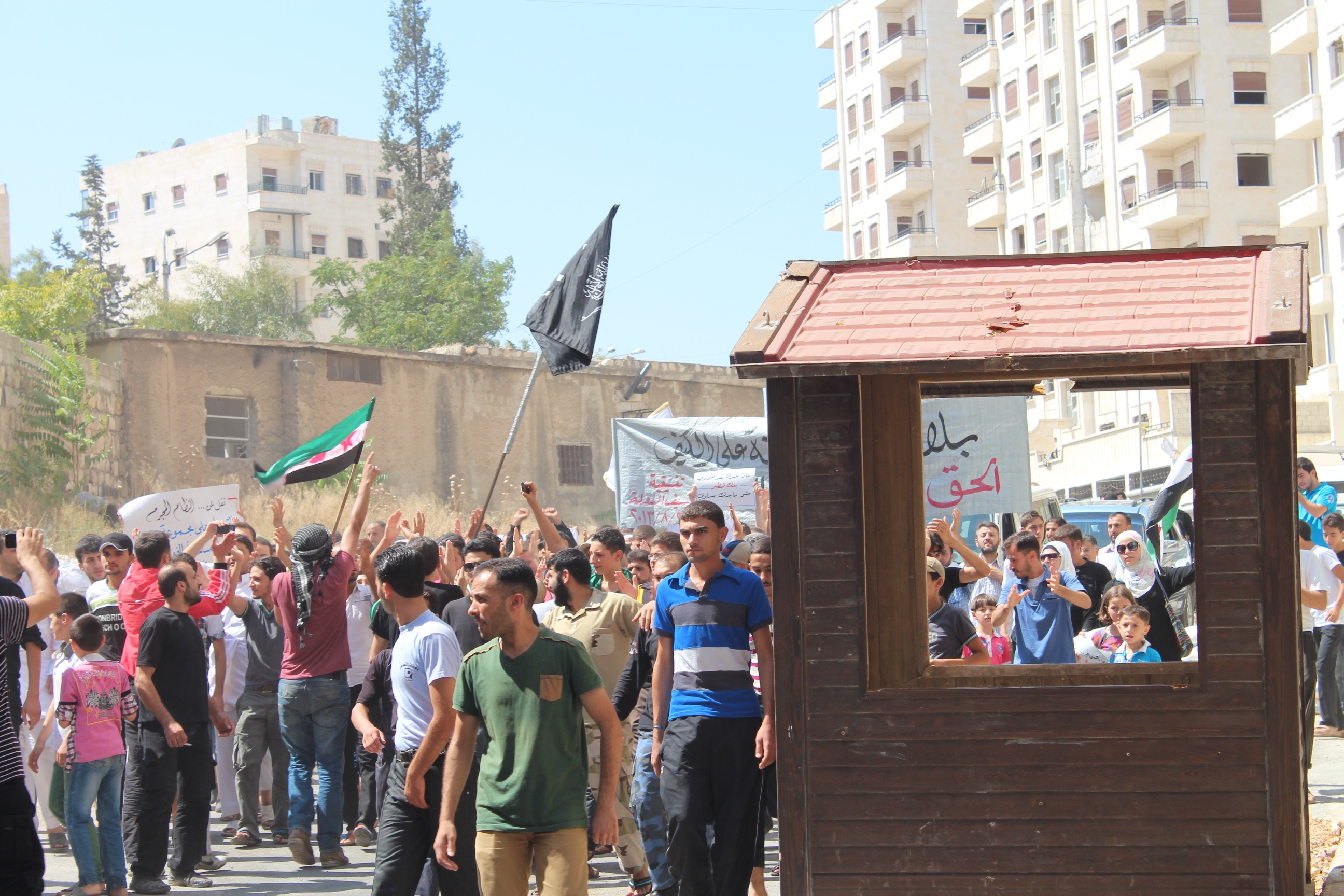A Day of Rage

Women's participation in a big demonstration in support of rebel fighters in Aleppo. Photo of: Salah al-Ashqar
One morning in April 2013, we woke up to find residents of our refugee camp up in arms over the death of a child in an electrical fire the previous night.
A short circuit had caused a fire in their tent. One young girl was killed and her brothers were injured.
The demonstrations began during the distribution of breakfast. Then the protests grew bigger and bigger and moved towards the administrative area of the camp. Some people began attacking the staff and workers whose job it was to distribute food to the tents. Cars and camp offices were vandalised in the angry chaos and some people had to be taken to hospital because of their injuries.
I did not support such action so I stayed in my tent, while camp staff and the Turkish police tried in vain to calm the demonstrations down.
Relatives of some of the staff members who had been attacked gathered in front of the camp and tried to enter it. The Turkish police tried to keep them away while other people in the camp removed some parts of the barbed wire fence to cross into the neighbouring fields and orchards.
The Turkish police had no option but to use teargas to control people and make them go back to their tents.
At the time, I did not know what was in these canisters that they were throwing but everybody began to return to their tents and closet themselves inside because of the fumes. I entered mine and closed the flaps tightly; I could hear someone screaming that these were chemical weapons. I was terrified and began crying, I didn’t know what to do.
My husband asked me to wet some fabric to put on my daughters’ faces. But because I was so afraid of what was happening, I began fighting with my husband, shouting that he had brought me to the camp in search of safety, not to die along with my daughters.
I told him, “I will go back, I won’t stay here!” and collapsed screaming and crying, half out of my mind.
But the power of God was stronger than anyone. A storm came, and the heavy rain, thunder and lightning calmed everyone down. The rain cleared the gases that were blinding our eyes and suffocating us.
Calm returned by three o’clock in the afternoon.
Security guards and the Turkish army then spread through the camp, marching line by line through its streets and identifying those people who had taken part in the riots. They seized them and their relatives and took them back across the border. Nearly 200 Syrian families were deported as a result of this mess.
I sat in my tent, terrified, while the army and the police roamed the camp for several hours. Everyone was starving because the workers had refused to distribute both lunch and dinner. We did not find something to eat, just some crusts of bread and leftovers from breakfast which I gave to my daughters so they could sleep.
The night came, along with the intense cold, but we could not turn on the heater because the electricity had been cut off. We were both starving and freezing. My daughters eventually fell asleep and I covered them with every blanket we had. My husband and I were so cold we lost all sensation in our limbs.
The fatigue, hunger and cold overwhelmed us and I could do nothing but fight with my husband. I told him that I would not stay another minute in this camp and that I was going back to Syria. I was furious.
Late at night, some young Syrians distributed some morsels of food to help us survive that cold night, but it was barely enough to feed a single member of my family. In the intense cold, it was difficult for us to find even a little drinking water.
In the morning, the Turkish staff distributed meals again although the water and electricity remained cut off until the evening, a punishment for all the people in the camp.
All of this was in response to chaos caused by people angry about an accident which had killed a child.
Those three days of upheaval were enough to make me lose the fragile feeling of security that I had been searching for in the camp. They made me think about returning to my city which I had left in order to find some safety and peace of mind.
But I knew that I would not find this peace, no matter where I went.
Taghrid al-Abdallah, 30, is from Kafr Nabl and is a mother of two daughters. She was displaced several times inside Syria as well as three times in Turkey.
